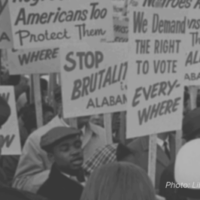Washington, DC—Following is a statement from Christine Owens, executive director of the National Employment Law Project, as the Supreme Court hears oral arguments today in a trio of cases under Epic Systems Corp. v. Lewis:
“Today, the Supreme Court will consider a fundamental worker right that dates back more than eight decades, and whether corporations can nullify that right through forced arbitration clauses tucked away in the fine print. A ruling in favor of the corporations could radically tilt the legal landscape in favor of big corporations that break workplace laws.
“Workers have a fundamental right to band together to pursue legal action against their employers and hold them accountable if they violate their employees’ rights and break the law.
“But today, corporations are trying to take away that right by simply inserting forced arbitration clauses into the fine print of employment contracts that employees must sign when starting a job.
“Not only do these forced arbitration clauses deny workers their day in a public court of law should a dispute arise, they often require workers to give up their right to pursue collective or group action—so that their private arbitrations are handled individually, one by one. It’s a way to isolate workers and make it harder for individual workers to enforce their rights, thereby permitting workplace violations to go unchallenged.
“Companies that use these forced arbitration and ‘class waiver’ clauses know that individual workers face enormous barriers if they have to bring their claims alone. Very few workers are willing to take on their employer by themselves and put a target on their backs for termination, abuse, or worse. And few workers can afford to spend thousands of dollars to pursue an individual case.
“Collective and class actions exist for this very reason, so that regular people can pool their claims and get a lawyer to take the case. As pointed out in the amicus brief we and our partners filed in this case, the right of employees ‘to act in concert for mutual aid or protection’ is a cornerstone of national labor policy—crucial to addressing the enormous disparity in economic power between individual workers and their employers.
“Unsurprisingly, President Trump’s Justice Department will argue in support of the corporations in these cases, having switched sides after the Justice Department had previously supported the workers. In fact, its position abandons 85 years of labor law precedent. It shows the hollowness of the president’s promise to put America’s workers first, and a frightening willingness to let corporations write the rules for the rest of us.”
###



